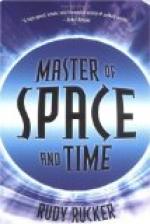Another pupil who came to him about this time was Mabel Hubbard, a fifteen-year-old girl who had lost her hearing and consequently her powers of speech, through an attack of scarlet fever when an infant. She was a gentle and lovable girl, and Bell fell completely in love with his pupil. Four years later he was to marry her and she was to prove a large influence in helping him to success. She took the liveliest interest in all of his experiments and encouraged him to new endeavor after each failure. She kept his records and notes and wrote his letters. Through her Bell secured the support of her father, Gardiner G. Hubbard, who was widely known as one of Boston’s ablest lawyers. He was destined to become Bell’s chief spokesman and defender.
Hubbard first became aware of Bell’s inventive genius when the latter was calling one evening at the Hubbard home in Cambridge. Bell was illustrating some mysteries of acoustics with the aid of the piano. “Do you know,” he remarked, “that if I sing the note G close to the strings of the piano, the G string will answer me?”
This did not impress the lawyer, who asked its significance.
“It is a fact of tremendous importance,” answered Bell. “It is evidence that we may some day have a musical telegraph which will enable us to send as many messages simultaneously over one wire as there are notes on that piano.”
From that time forward Hubbard took every occasion to encourage Bell to carry forward his experiments in musical telegraphy.
As a young man Bell was tall and slender, with jet-black eyes and hair, the latter being pushed back into a curly tangle. He was sensitive and high-strung, very much the artist and the man of science. His enthusiasms were intense, and, once his mind was filled with an idea, he followed it devotedly. He was very little the practical business man and paid scant attention to the small, practical details of life. He was so interested in visible speech, and so keenly alert to the pathos of the lives of the deaf mutes, that he many times seriously considered giving over all experiments with the musical telegraph and devoting his entire life and energies to the amelioration of their condition.
XII
THE BIRTH OF THE TELEPHONE
The Cellar at Sanderses’—Experimental
Beginnings—Magic Revived in
Salem Town—The
Dead Man’s Ear—The Right Path—Trouble
and
Discouragement—The
Trip to Washington—Professor Joseph Henry—The
Boston Workshop—The
First Faint Twang of the Telephone—Early
Development.




